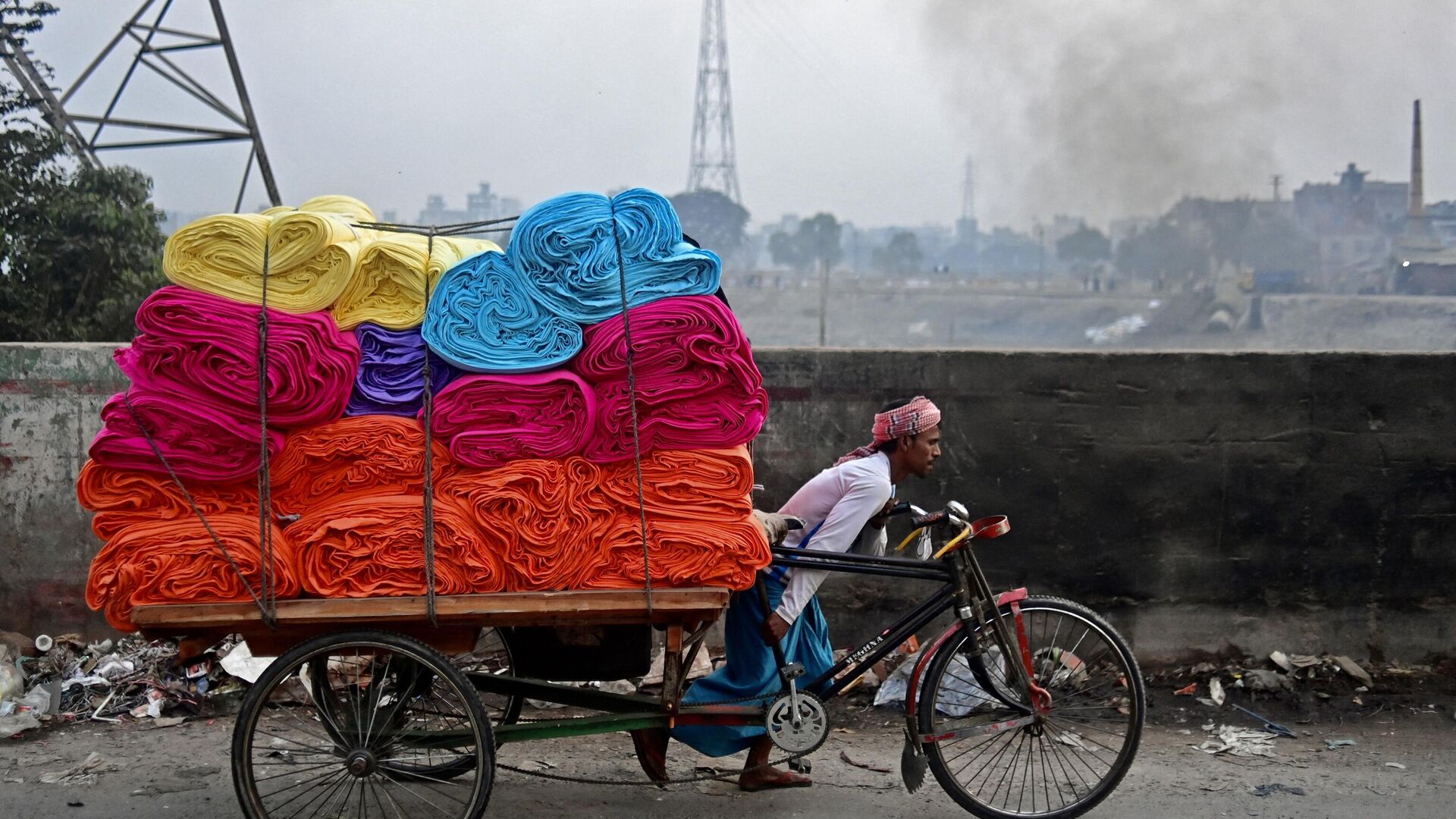https://sputniknews.in/20230110/bangladesh-expects-45-bln-imf-deal-as-currency-crisis-deepens-441243.html
Bangladesh Expects $4.5 Bln IMF Deal as Currency Crisis Deepens
Bangladesh Expects $4.5 Bln IMF Deal as Currency Crisis Deepens
Sputnik India
Bangladesh had applied for the loan of $4.5 billion last year and the International Monetary Fund has provisionally agreed to it, subject to certain conditions.
2023-01-10T19:14+0530
2023-01-10T19:14+0530
2023-01-10T19:14+0530
world news
pakistan
sri lanka
economic crisis
https://cdn1.img.sputniknews.in/img/07e7/01/0a/443648_0:160:3073:1888_1920x0_80_0_0_9800c2437fe7f09f6e909d1e6554fff7.jpg
Bangladesh's foreign exchange reserves fell to $32.52 billion after the country's central bank, Bangladesh Bank, cleared scheduled international import bills of $1.12 billion on Monday.Local media reported that the central bank paid $1.12 billion to clear import payments from member countries of the Asian Clearing Union (ACU), a payment mechanism established by the central banks of several Asian countries to facilitate the settlement of intra-regional transactions.The ACU was established in 1974 by the central banks of five countries: Bangladesh, Iran, India, Pakistan, and Sri Lanka.The primary objective of the visit is to finalize an agreement for a $4.5 billion loan that was requested by Bangladesh last July. During her visit, Sayeh will meet with several key officials in the Bangladeshi government, including Prime Minister Sheikh Hasina.The loan, which is subject to certain conditions, is intended to provide financial support to Bangladesh as it deals with the economic impact of the COVID-19 pandemic.Since the COVID-19 outbreak, the country has been grappling with a number of economic challenges, including rising inflation and a decline in its reserves of foreign currency. These issues have been exacerbated by the geopolitical tensions in Europe, which have added to the economic uncertainty.
pakistan
sri lanka
Sputnik India
feedback.hindi@sputniknews.com
+74956456601
MIA „Rossiya Segodnya“
2023
News
en_IN
Sputnik India
feedback.hindi@sputniknews.com
+74956456601
MIA „Rossiya Segodnya“
Sputnik India
feedback.hindi@sputniknews.com
+74956456601
MIA „Rossiya Segodnya“
currency crisis in bangladesh, economic crisis in bangladesh, energy crisis in bangladesh, imf deal for bangladesh in 2023,
currency crisis in bangladesh, economic crisis in bangladesh, energy crisis in bangladesh, imf deal for bangladesh in 2023,
Bangladesh Expects $4.5 Bln IMF Deal as Currency Crisis Deepens
Bangladesh applied for the loan of $4.5 billion last year and the International Monetary Fund (IMF) provisionally agreed to it, though it did set certain conditions.
Bangladesh's foreign exchange reserves fell to $32.52 billion after the country's central bank, Bangladesh Bank, cleared scheduled international import bills of $1.12 billion on Monday.
Local media reported that the central bank paid $1.12 billion to clear import payments from member countries of the Asian Clearing Union (ACU), a payment mechanism established by the central banks of several Asian countries to facilitate the settlement of intra-regional transactions.
The ACU was established in 1974 by the central banks of five countries: Bangladesh, Iran, India, Pakistan, and Sri Lanka.
Meanwhile, IMF members led by Deputy Managing Director Antoinette Monsio Sayeh are set to travel to Dhaka on January 14 for a five-day visit.
The primary objective of the visit is to finalize an agreement for a $4.5 billion loan that was requested by Bangladesh last July. During her visit, Sayeh will meet with several key officials in the Bangladeshi government, including Prime Minister Sheikh Hasina.
The loan, which is subject to certain conditions, is intended to provide financial support to Bangladesh as it deals with the
economic impact of the COVID-19 pandemic.
Since the COVID-19 outbreak, the country has been grappling with a number of economic challenges, including rising inflation and a decline in its reserves of foreign currency. These issues have been exacerbated by the geopolitical tensions in Europe, which have added to the economic uncertainty.
It is noteworthy that Bangladesh is the third South Asian nation to secure a bailout from the IMF; Pakistan and Sri Lanka have also received IMF bailouts.

